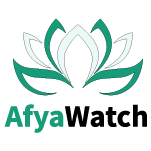It is World breastfeeding week just in case it escaped you. Today Afyawatch explores the question on just how important is breastfeeding?
The World Breastfeeding Week is aimed at enhancing the conversation around the importance of breastfeeding for the newborn baby as well as the mother. The theme this year, 2019, is “Empower Parents, Enable Breastfeeding.”
According to Dr.Everline Inyangala a nutritionist at Mother&Baby Moi teaching and referral hospital, the aim is to educate both parents especially men on the importance of breastfeeding and the support women require during this period.
“People think that it is only a woman’s business when it comes to breastfeeding. No! Men are also involved because the mother needs total support from the husband. That is why we are advocating for paid paternity leave to help in caring for the baby in equal measures”, says Dr Everline.
Navigating Breastfeeding
Florence is a 28-year-old new mother. Her daughter is 5 days old. Her husband was ever there, from the labour room to postnatal. She explains how easy the journey is, with her husband as a support system.
“My husband was there for me. After delivery, I was given my baby and immediately I was told to breastfeed. I had no problem with breastfeeding because I had enough milk. At some point I had to use nursing pads”, says Florence.
“A good number of men understand but others tend to cling on traditions like a man should not hold a child until 1 year or something “, says Dr Everline laughing.
“After delivery, a mother needs both psychological and emotional support in order to generate enough milk for the baby”, says Dr.Eveline.
“For bonding purposes and health of the baby, a mother is advised to breastfeed her newborn 30 min after delivery because Colostrum (the yellowish breast milk produced at the end of pregnancy), is the perfect food for the newborn”, says Dr Everline.
According to Dr Everline, there are factors that may lead to a lack of enough milk for breastfeeding. Stress is a major cause.
“Ever heard of a mother saying ‘sina maziwa ya kutosha?’ Most of the mothers who experience lack of milk tend to suffer from stress hence affecting prolactin hormones, responsible for lactation”, explains Dr Everline.
Monica, not her real, name is a mother of 3. Her newborn daughter is 3 days old. First, she admits that it is not easy concentrating on the baby after her husband abandoned her in the hospital after the news that it was a girl. She has 2 other daughters.
“I was so frustrated about the whole issue. I tried to breastfeed my baby 30 min after delivery as recommended, but there was no milk. I had sore nipples, so painful. I could look at my baby crying but couldn’t help”, narrates Monica.
“It was after one of the nurses had talked to me that I realized it was due to stress that I wasn’t able to produce milk, so I had no choice but to put everything behind for the sake of the baby. After a while, I was able to breastfeed”.
Other Factors That Contribute to Low or No Breast milk
- Depression
- Breast cancer
- Lack of a balanced diet
- Infection
- Sickness
“A mother should practice exclusive breastfeeding for up to 6 months of age because it helps the baby to develop a strong immune system that is able to fight various diseases”, says Dr, Everline.
Other advantages include;
- Reduces the infant risk of having respiratory illnesses, allergies and diarrhea.
- It supplies all the necessary nutrients in just the right proportions.
- It protects against allergies, sickness, and obesity.
- It protects against diseases, like diabetes and cancer.
- It protects against infections, like ear infections.
- It is easily digested – no constipation, diarrhoea or upset stomach.
- Babies have healthier weights as they grow.
- Breastfed babies score higher on IQ tests.
- Breastfeeding has been linked to higher IQ scores in child development.
- It is healthy for baby, it is healthy for the environment as there is no waste.
According to WHO, breastfeeding promotes better health for mothers and children.
Increasing breastfeeding to near-universal levels could save more than 800 000 lives every year, the majority being children under 6 months.
Breastfeeding may decrease the risk of mothers developing breast cancer, ovarian cancer, type 2 diabetes, and heart disease.











